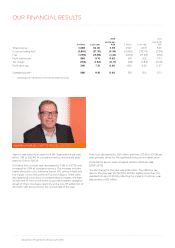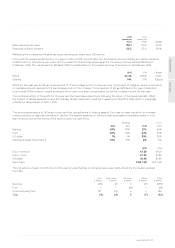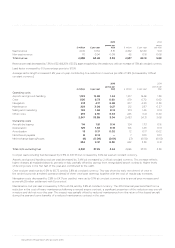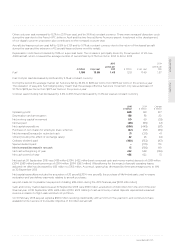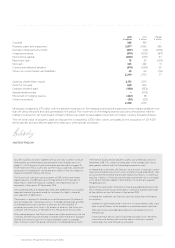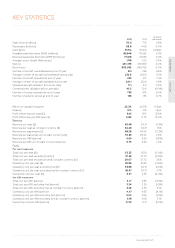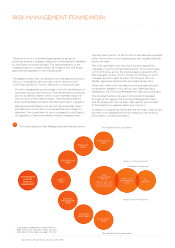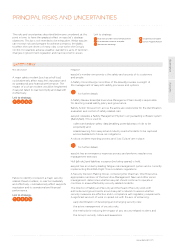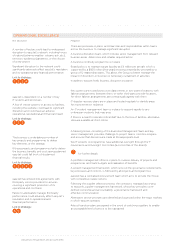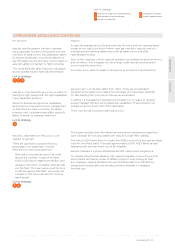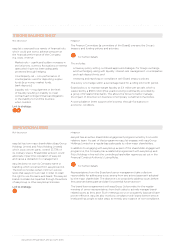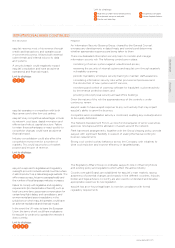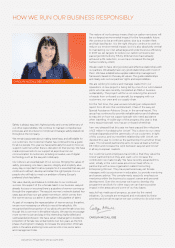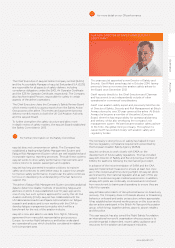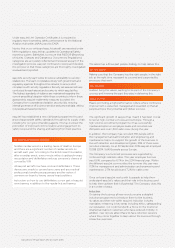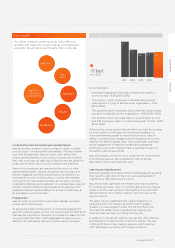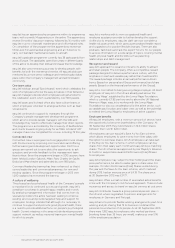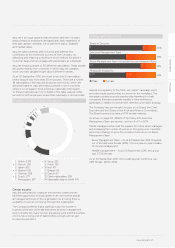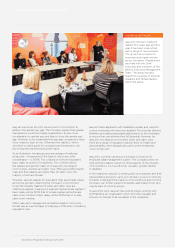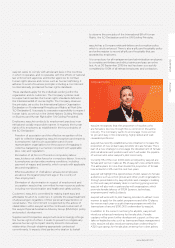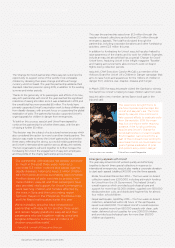EasyJet 2015 Annual Report Download - page 32
Download and view the complete annual report
Please find page 32 of the 2015 EasyJet annual report below. You can navigate through the pages in the report by either clicking on the pages listed below, or by using the keyword search tool below to find specific information within the annual report.
28 easyJet plc Annual report and accounts 2015
Risk continued
STRONG BALANCE SHEET
Risk description Mitigation
Financial risk
easyJet is exposed to a variety of financial risks
which could give rise to adverse pressure on
the financial performance of the Company,
e.g. costs, revenue.
• Market risks – significant/sudden increases in
jet fuel prices, currency fluctuations or interest
rates which have not been adequately
protected through hedging
• Counterparty risk – non-performance of
counterparties used for depositing surplus
funds (e.g. money market funds,
bank deposits)
• Liquidity risk – misjudgement in the level
of liquidity resulting in inability to meet
contractual/contingent financial obligations
or the inability to fund the business
when needed.
Link to strategy:
3 4
The Finance Committee (a committee of the Board) oversees the Group's
treasury and funding policies and activities.
Turn to page: 59
for further details
This includes:
• a treasury policy setting out Board approved strategies for foreign exchange
and fuel hedging, along with liquidity, interest rate management, counterparties
and cash deposit limits; and
• reviewing and reporting on compliance with Board treasury policies.
The policy is to hedge within a percentage band for a rolling 24-month period.
Board policy is to maintain target liquidity at £4 million per aircraft, which is
supported by a $500 million (five-year) revolving credit facility provided by
a group of 12 relationship banks. This allows the Group to better manage
the impact of downturns in business or temporary curtailment of activities.
A strong balance sheet supports the business through fluctuations in
economic conditions.
Risk description Mitigation
Major shareholder and brand
owner relationship
easyJet has two major shareholders (easyGroup
Holdings Limited and Polys Holding Limited)
which, as a concert party, control 33.73% of
its ordinary shares. Shareholder activism could
adversely impact the reputation of easyJet
and cause a distraction to management.
easyJet does not own its Company name or
branding, which is licensed from easyGroup Ltd.
The licence includes certain minimum service
levels that easyJet must meet in order to retain
the right to use the name and brand. The easyJet
brand could also be impacted through the actions
of easyGroup or other easyGroup licensees.
Link to strategy:
4
easyJet has an active shareholder engagement programme led by its investor
relations team. As part of that programme easyJet engages with easyGroup
Holdings Limited on a regular basis alongside its other major shareholders.
In addition to engaging with easyGroup as part of the shareholder engagement
programme, the Company has a relationship agreement with easyGroup and
Polys Holdings in line with the controlling shareholder regime as set out in the
Financial Conduct Authority's Listing Rules.
Turn to page: 83
for further details
Representatives from the Board and senior management take collective
responsibility for addressing issues arising from any activist approach adopted
by the major shareholder. The objective is to proactively address issues before
they arise and anticipate and plan for potential future activism.
The brand licence agreement with easyGroup Ltd provides for the regular
meeting of senior representatives from both sides to actively manage brand-
related issues as they arise. Such meetings occur on a quarterly basis and have
proven effective. easyJet also monitors compliance with brand licence service
levels and has a right to take steps to remedy any instance of non-compliance.
REPUTATIONAL RISKS


